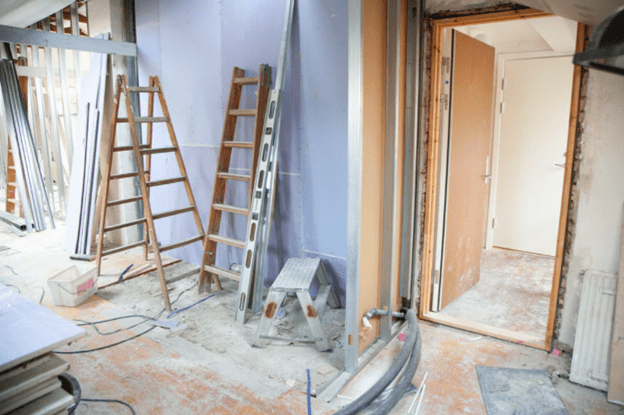In order to find your residential construction project, you can apply for a residential construction loan. But before you go to the bank, learn a little bit more about what these loans are and how to get them.
What Is A Residential Construction Loan
A residential construction loan, also referred to as a self-build loan, is a loan that can be used to finance a residential construction project.
Long-term or short-term?
Residential construction loans are short-term loans. The typical loan period for this type of loan is about a year (12 months). These loans are typically high-interest.
What does a residential construction loan cover?
It covers things like the cost of land, contractor labor, permits, building materials, permanent fixtures like appliances and landscaping can also be covered. These types of loans can also act as a cushion for unplanned costs.
Who can get this loan?
Both a builder and a homeowner can get a residential construction loan. Typically a homeowner will apply to this loan if they’re constructing a custom-built home.
What is the payment structure on a residential construction loan?
In some cases, the borrower can pay off the loan in installments while construction is happening. In other cases, the loan must be paid off entirely before the building is complete.
Who gets the money?
In many cases, even if the homeowner takes out the loan, the lenders may pay the money to the contractor either in installments or all at once.
What kind of projects does this type of loan cover?
Residential construction loans can be used for home restorations/rehabilitations, and new home builds.
Does this type of loan require a down payment?
Most lenders require a minimum down payment of about 20%, while others require 25%.
How to qualify for a construction loan.
Like any loan, a construction loan typically requires a strong credit score and credit history. If you’re a homeowner securing this loan, you’ll need to furnish proof that you’re working with a qualified builder. You’ll also want to ensure that your debt-to-income ratio (DTI) is below 40%. You will have to provide an extensive list of the details of the construction or a blue book.
Where to get a residential construction loan?
Regional banks and local credit unions often give out these types of loans. While regional banks have more lending power, local credit unions will be more familiar with the area and the builders that operate within it.
How to get a construction loan:
- Make sure your credit score is above 700, your DTI is under 40%, and that your credit history is solid. Because there is no house to provide as collateral, lenders are extra thorough in risk management.
- Get a licensed builder. The lender will require proof that you’re working with a quality, certified builder. Once you’ve chosen a builder, you’ll want to get an official contract as lenders will ask to see it.
- Shop around both regional and local credit unions to see who can offer the best deal. Look for things like lower down payments and a reasonable payment plan
Like any loan, it’s good to do your research to make sure you’re getting a good deal. We recommend that you get pre-approved for a residential construction loan. When you get pre-approved you’ll know how much you’ll be able to get from a loan which will help streamline the design and building process.
